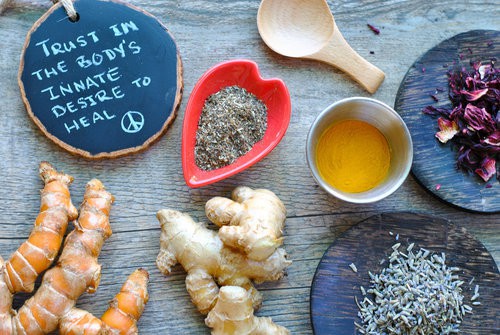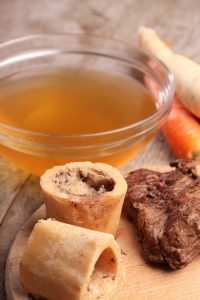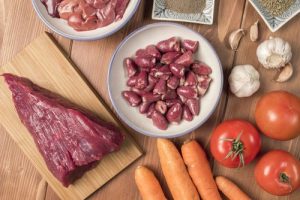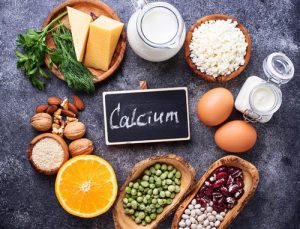
17 Oct Postpartum Nutrition: Taking care of YOU after labour
As soon as you arrive home after the birth of your baby, you realize that newborns need a lot of work and attention – it’s the beginning of the gratifying, but exhausting period in a woman’s life. The postpartum period begins after labour and the following six weeks after; this is a new stage with lots of changes, both emotionally and physically.
While you and your partner are going to be busy with all the needs that being responsible for a child involves, you also need to set time to have proper rest and take good care of yourself. Good nutrition during these postpartum weeks is vital in order to restore your strength and nurture yourself.
In many cultures, after childbirth, mothers are encouraged to eat foods linked to health restoration and they are prohibited from eating foods linked to illness. The first 40 days are devoted to helping the mother to recover, rest, bond with her child and consume iron rich foods from organ meats and bone broths. Family members usually offer to the new mum, foods high in protein, nutrients, and calories for the mother to ensure she will make good milk for the infant and for herself to heal. In many cultures, after giving birth, the woman is encouraged to eat hot foods which are also protein rich foods. 1Hot foods are therefore encouraged to restore harmony and balance. Protein rich foods often contain high levels of iron, zinc, choline and maybe glycine…all important for healing and recovery. So there are obvious nutritional patterns when we look at these cultures….we have a lot to learn still from our forefathers!
1. NUTRIENTS NEEDED TO RECOVER POST DELIVERY
Strict diets, like ketogenic, low carb diets or skipping meals are not recommended in this first stage of postpartum. When breastfeeding, a woman needs at least 1800 Kcal per day, in order to keep a good milk supply, besides, a diet in energy deficit in most of the cases is lacking in essential nutrients too, which will negatively affect the nutrient composition of the human milk transferred to the baby. (Check out my blog on Dieting while breastfeeding – does it affect your milk supply? for more information).
Instead, you should eat nutrient-dense foods to recover and heal your body after giving birth and to meet the demanding energy needs of lactation.
Besides a good caloric supply, your body will also need to restock on some nutrients, such as:
PROTEIN
 labor, when protein, such as the amino acids glycine and proline, are needed for growth and repair of your cells and tissues. Protein will also help you to recover from the physiological strain of childbirth 2. Some studies have also shown that consuming adequate protein intake may be positive for postpartum body weight loss and to preserve lean body mass 3, 4.
labor, when protein, such as the amino acids glycine and proline, are needed for growth and repair of your cells and tissues. Protein will also help you to recover from the physiological strain of childbirth 2. Some studies have also shown that consuming adequate protein intake may be positive for postpartum body weight loss and to preserve lean body mass 3, 4.COLLAGEN
Collagen is the protein building block of all your connective tissues, such as bones, muscles, skin, hair, nails and tendons. After childbirth, collagen is essential to aid skin and tissue repair. It is needed as well to help build new bone and repair those under pressure. There has been little research about collagen supplementation and the postpartum stage, but a study who followed the physical and quality of life of mothers taking collagen protein supplementation, showed improved wound healing rates. 5
IRON
Globally, 38% of pregnant women are anaemic, half of these cases are estimated to be due to iron deficiency. 6 While many women feel that low iron will just make them feel tired and is not a major health concern, anaemia carries significant risks for the mother and the child. 115,000 maternal deaths/year occur globally from iron deficiency anaemia. Not only does it increase the risk of miscarriage, stillbirth and having a low birth weight child, it can increase the risk of birth complications, haemorrhaging and maternal depression. When a mother or child is anaemic, they are more likely to have reduced motor coordination, attention deficit, language difficulties, lower cognitive ability, decreased school participation, altered aerobic capacity and endurance which will ultimately affect the mother and child’s ability to fully engage in their work, school and leisure activities at both a physical and intellectual level. 7

Postpartum anaemia also occurs more frequently in women who DON’T breastfeed or breastfeed for only a short period of time, due to the levels of prolactin decreasing, which would normally prevent ovulation and menstrual blood loss. The strongest known risk factors for postpartum anemia is high pre-pregnancy body mass index, due to the increased risks for large babies, caesarian section and postpartum hemorrhage. 8
During breastfeeding, you need to rebuild your iron stores lost during labour and the pregnancy period. This can easily be done by eating iron-rich foods like red meats, organ meats, meat broths, fortified cereals, and legumes. Most new mums won’t need a supplement, however, iron supplementation may be recommended when blood loss was higher than usual or the interval between pregnancies is less than 2 years. When your blood test shows an iron deficit, supplements might be recommended9.
CALCIUM
If you don’t normally eat many calcium-rich foods, it will not affect the concentration of calcium in your breastmilk, but it can have an adverse effect on your bone density, especially if the duration of breastfeeding is long. So, make sure you include calcium-rich foods, such as dairy products, fish such as sardines and salmon, green leafy vegetables, seeds and nuts, and other fortified products. You will probably need supplements if your dairy intake is low or if the intake from other sources is inadequate 10.
ANTIOXIDANTS
Postpartum, your body is going through massive healing and requires huge demands of nutrient rich breast milk for your baby. It is also a time where there will be large hormonal shifts as your body readjusts to a pre-pregnant state, leaving you more prone to postpartum depression (inflammation is indicated in PPD). Inflammation in the body, as your body recovers, can be reduced through nutrient rich foods containing antioxidants. These antioxidants protect your cells from the effects of free radicals and inhibit the release of pro-inflammatory cytokines. You’ll find many fresh colourful fruit and vegetables (especially leafy greans and berries), fatty fish like salmon and sardines, EVOO (extra virgin olive oil) and probiotics such as kefir, kombucha etc will help to restore your body’s balance. 11 Also check out some superfoods I talked about in “Boost Your Nutrients During Pregnancy With These 6 SUPERFOODS!” which can also be applied during the postpartum period.
FLUIDS & ELECTROLYTES
Women in the postpartum period need to drink fluids regularly throughout the day, to recuperate what was lost during labour and with ongoing fluid and electrolyte losses from breastfeeding. There is no recommended number of glasses, however, it is advisable to drink a glass of water every time you breastfeed. A good gauge of hydration is the color of urine, meaning that a dark yellow urine might be a sign that you need to drink more, and clearer urine means good hydration. Try to hydrate with water or non-caloric drinks, avoid juices or sweetened beverages 12.
It is also important to remember that electrolytes are excreted in breast milk, and may get depleted when following a more low carb diet. Animal food stews, bone broths and soups can help to replace these crucial electrolytes and fluids. 13
2. THE IMPORTANCE OF FIBRE!
Postpartum, your pelvic floor muscles are going to be very weak and strained, after holding up a baby for 9 months and then straining to get him/her out! These vital muscles help to support our pelvic organs, such as the bladder, bowel and uterus. Add in the complications of vaginal and/or anal tears, this sensitive area of our body well and truly needs a rest postpartum! This is where the importance of fibre comes in. To make things easier for our body, so that we prevent and reduce further straining and pushing on weakened pelvic muscles or healing wounds that have been sutured, we need to have a high fibre diet to ease the stools out with minimal effort. On an equally important note, fibre intake has strong implications on our gut health which in turn plays a significant part in keeping our immune system strong. Given the inflammation occurring postpartum, fibre will also help in your healing process. Probiotic-rich foods like yogurt and kéfir should also be considered. These help maintain a healthy gut, which helps quell inflammation throughout your body while improving digestion.
Dietary fibre is the part of our plant foods that can’t be digested. Traditionally, dietary fibre has been divided into two groups: insoluble and soluble. Insoluble fibre makes its way through the digestive system relatively intact, acting as a sort of sweeping compound and making the stool softer and bulkier.
Soluble fiber, on the other hand, comes from structures within the cells of the plant. As soluble fiber enters the digestive tract, it absorbs water and dissolves it into a thick, viscous gel. As this is a softer type of fibre and may prevent irritation of the bowel, postpartum, it may be recommended to consume more of this type of fibre as constipation is the enemy postpartum!
You’ll find soluble fibre in psyllium, oat bran, barley, lentils, legumes, chia seeds and some fruits and vegetables. However, it is best to discuss fibre postnatally with your women’s health and incontinence physiotherapist and an Accredited Practicing Dietitian such as myself, particularly if there is a need to take a stool softener or laxative. Also read my blog on postpartum recovery and the importance of fibre!
IN SUMMARY…
Women are not supposed to get back on their feet, return to work immediately, get back to their pre-pregnant weight quickly, do things on their own without a support network and their tribe, AND be a supermum juggling everything while a baby saps the energy out of them….yes some women can…but for the vast majority we can’t…especially in those 6-8 weeks postpartum. We are EXHAUSTED, SORE and EMOTIONAL! The World Health Organisation recommends women to space their children so that there are at least 2 years between one pregnancy and the next. There is good reason for that….it takes TIME for our body to recuperate physically and mentally, to restore our bodies with the nutrients that we lovingly gave to our child through pregnancy and breastfeeding. Get in touch with me , a university qualified Accredited Practicing Dietitian, to help you recuperate in a healthy way. And do yourself a favour mums….be KIND to your body…be KIND to yourself…give yourself TIME and get your tribe to help nourish you back to being a healthy you! 🙂
REFERENCES:
1. Dennis CL, Fung K, Grigoriadis S, Robinson GE, Romans S, Ross L. Traditional postpartum practices and rituals: a qualitative systematic review. Womens Health (Lond). 2007 Jul;3(4):487-502. doi: 10.2217/17455057.3.4.487.
2. Healthyeating.sfgate.com. (2018). How Much Protein Does a Lactating Mother Need?. [online] Available at: https://healthyeating.sfgate.com/much-protein-lactating-mother-need-6976.html [Accessed 21 Sep. 2018].
3. de Castro MB, Kac G, de Leon AP, Sichieri R. High-protein diet promotes a moderate postpartum weight loss in a prospective cohort of Brazilian women. Nutrition. 2009 Nov-Dec;25(11-12):1120-8. doi: 10.1016/j.nut.2009.02.006
4. Motil KJ, Sheng HP, Kertz BL, Montandon CM, Ellis KJ. Lean body mass of well-nourished women is preserved during lactation. Am J Clin Nutr. 1998 Feb;67(2):292-300.
5. Baginski L, Winter M, Bailey TS, Capobianco S, Granese M, et al. (2016) Response to Hydrolysed Collagen Protein Supplementation in a Cohort of Pregnant and Post-Partum Women. J Preg Child Health 3: 275. doi:10.4172/2376-127X.1000275
6. WHO/1000 DAYS. 2014. WHA Global Nutrition Targets 2021: Anaemia Policy Brief. http://www.who.int/nutrition/topics/globaltargets_anaemia_policybrief.pdf
7. Pan American Health Organisation (PAHO). Iron deficiency anemia: Research on iron fortification for efficient, feasible solutions. https://www.paho.org/hq/index.php?option=com_content&view=article&id=11679:iron-deficiency-anemia-research-on-iron-fortification-for-efficient-feasible-solutions&Itemid=40275&lang=en (Retrieved 10th October, 2018).
8. Bodnar, LM., Cogswell, ME., McDonald T. 2005. Have we forgotten the significance of postpartum iron deficiency? AJOG 193 (1): 36-44. https://linkinghub.elsevier.com/retrieve/pii/S0002937804020927 (Retrieved 10th October, 2018).
9. Association of Reproductive Health Professionals. (2018). Counseling Postpartum Patients About Diet and Exercise. [online] Available at: https://arhp.gome.me/index.php/clinical-fact-sheets/counseling-postpartum-patients-about-diet-and-exercise [Accessed 21 Sep. 2018].
10. Institute of Medicine (US) Committee on Nutritional Status During Pregnancy and Lactation. Nutrition During Lactation. Washington (DC): National Academies Press (US); 1991. 9, Meeting Maternal Nutrient Needs During Lactation. Available from: https://www.ncbi.nlm.nih.gov/books/NBK235579/
11. Alejandro Carrasco. Your Complete Guide to Postpartum Nutrition. https://www.mindbodygreen.com/articles/postpartum-nutrition-guide (Retrieved 10th October, 2018).
12. Mary L. O’Toole, Marjorie A. Sawicki, and Raul Artal. Journal of Women’s Health.Dec 2003.ahead of print http://doi.org/10.1089/154099903322643910
13. Nichols, Lily. (2018). Real Food for Pregnancy: The Science and Wisdom of Optimal Prenatal Nutrition (Kindle Locations 6186-6187). Kindle Edition.




Jhoei
Posted at 20:27h, 16 OctoberThis is so true! I remember myself eating these after giving birth to my two girls. We’ve been through a lot of pain during labor so we need to regain everything we lost during the process and so we must be conscious about the food that we need to eat to recover from giving birth.
Kristy
Posted at 22:40h, 14 JanuaryExactly! Food is our medicine <3